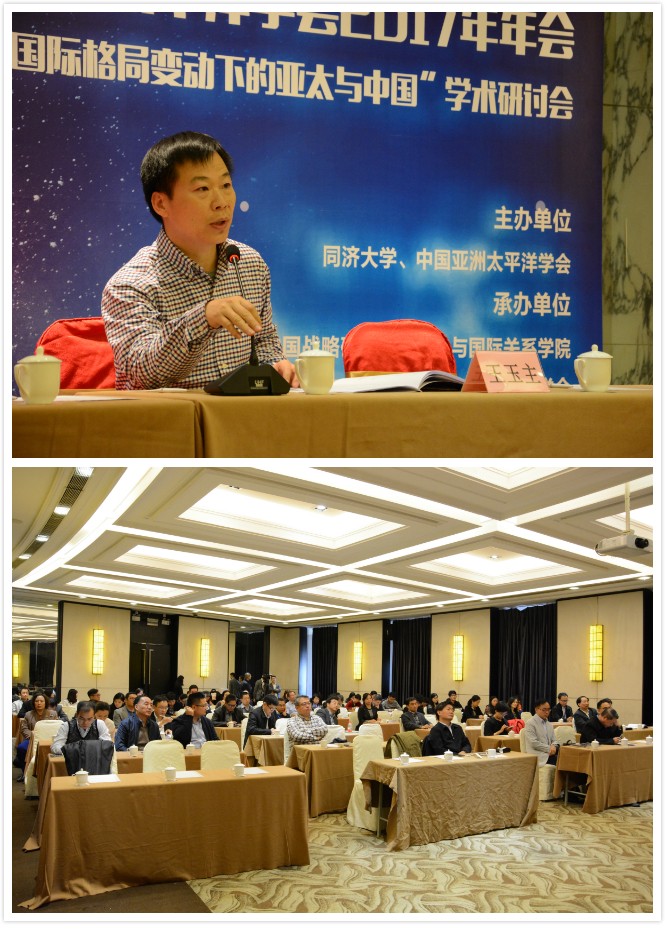News



Co-hosted by Tongji University and the Chinese Association of Asia-Pacific Studies (CAAPS), and co-organized by the Institute for China & World Studies, the School of Political Science & International Relations (SPSIR) and the Center for Asia-Pacific Studies at Tongji University, and Shanghai Association for International Studies, the Annual Conference 2017 of the Chinese Association of Asia-Pacific Studies & the Seminar on “Asia-Pacific and China under a Changing International Situation” was successfully held in Tongji University on November 10-12, 2017. Nearly 120 scholars engaged in Asia-Pacific studies from a dozen of domestic universities and research institutions including Tongji University, Chinese Academy of Social Sciences (CASS), Shanghai Academy of Social Sciences (SASS), National Development and Reform Commission (NDRC), Shanghai Institutes for International Studies (CIIS), Fudan University, Renmin University of China, Jilin University, Shandong University, Tsinghua University, and Sichuan University gathered at Tongji to discuss a number of topics including changes in the Asia-Pacific pattern and its influence, China and the Asia-Pacific region under the new pattern, competition and cooperation in the Asia-Pacific region, strategic trends of countries in the Asia-Pacific region, and the enrichment and development of China’s Asia-Pacific strategy, around the theme of “Asia-Pacific and China under a Changing International Situation”. Participants were encouraged to submit academic articles to the annual conference for the first time. Finally the hosts received a total of nearly 50 professional papers, covering a wide range of topics on the international strategic pattern in the Asia-Pacific region, the security situation in the Asia-Pacific region, the economic and trade relations of the Asia-Pacific countries, Asia-Pacific regional cooperation, and China’s neighboring diplomacy.
The opening ceremony was moderated by Li Xiangyang, Vice President of CAAPS and Director of the National Institute of International Strategy of the Chinese Academy of Social Sciences (NIIS CASS). Professor Zhang Yunling, President of CAAPS, Academy Member and Director of International Studies at CASS, and Ma Jinming, Deputy Secretary of the Party Committee of Tongji University, attended the opening ceremony and delivered speeches.
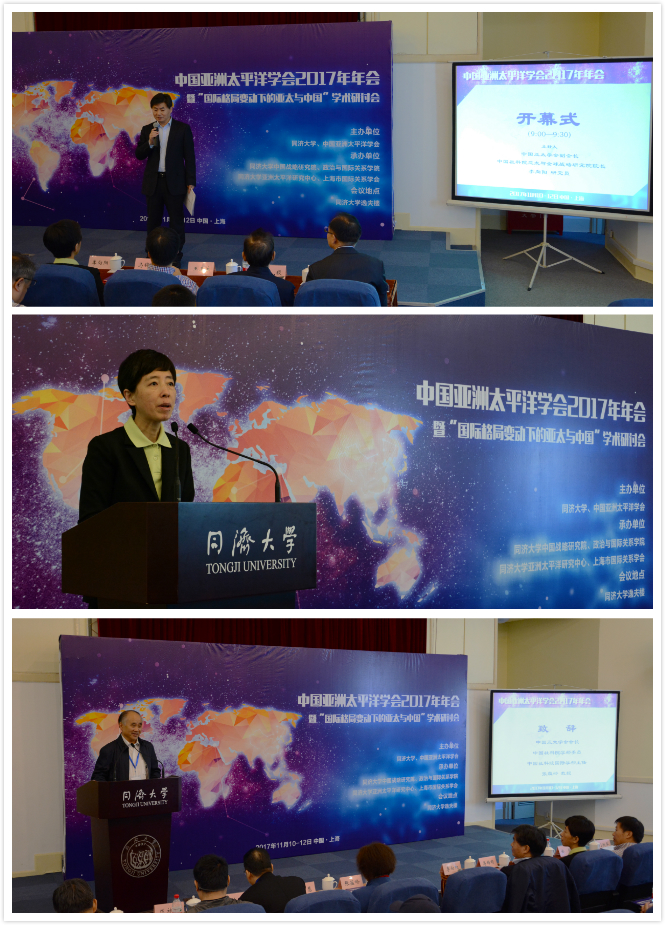
After the opening ceremony, the leaders and guests took a group photo in front of the statue of Chairman Mao.
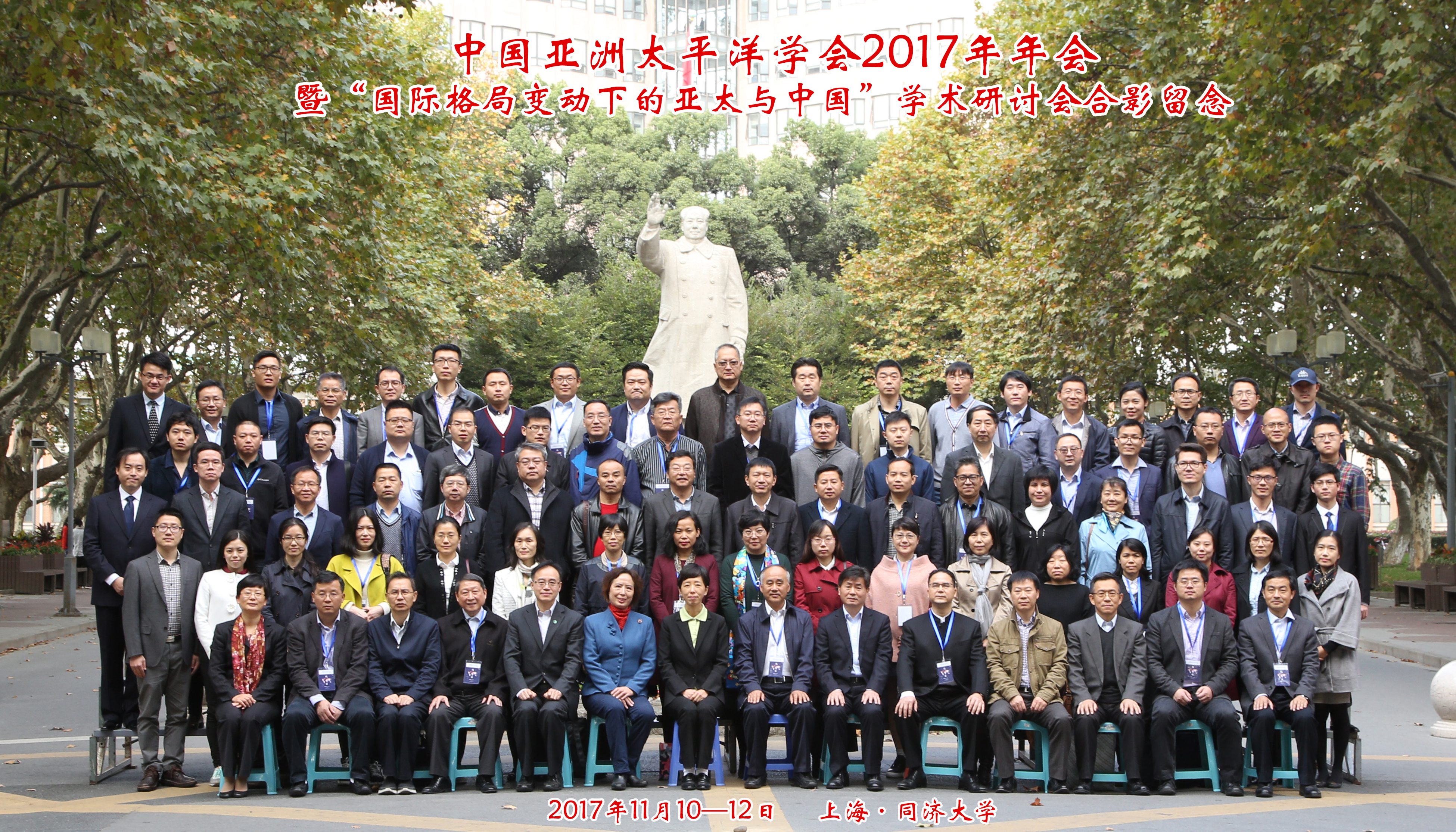
Themed “Changes in the Asia-Pacific Pattern and Its Influence”, the first session was moderated by researcher Huang Zhiyong, Vice President of CAAPS and Deputy Director of the Party History Research Center of the Party Committee of Guangxi Zhuang Autonomous Region.
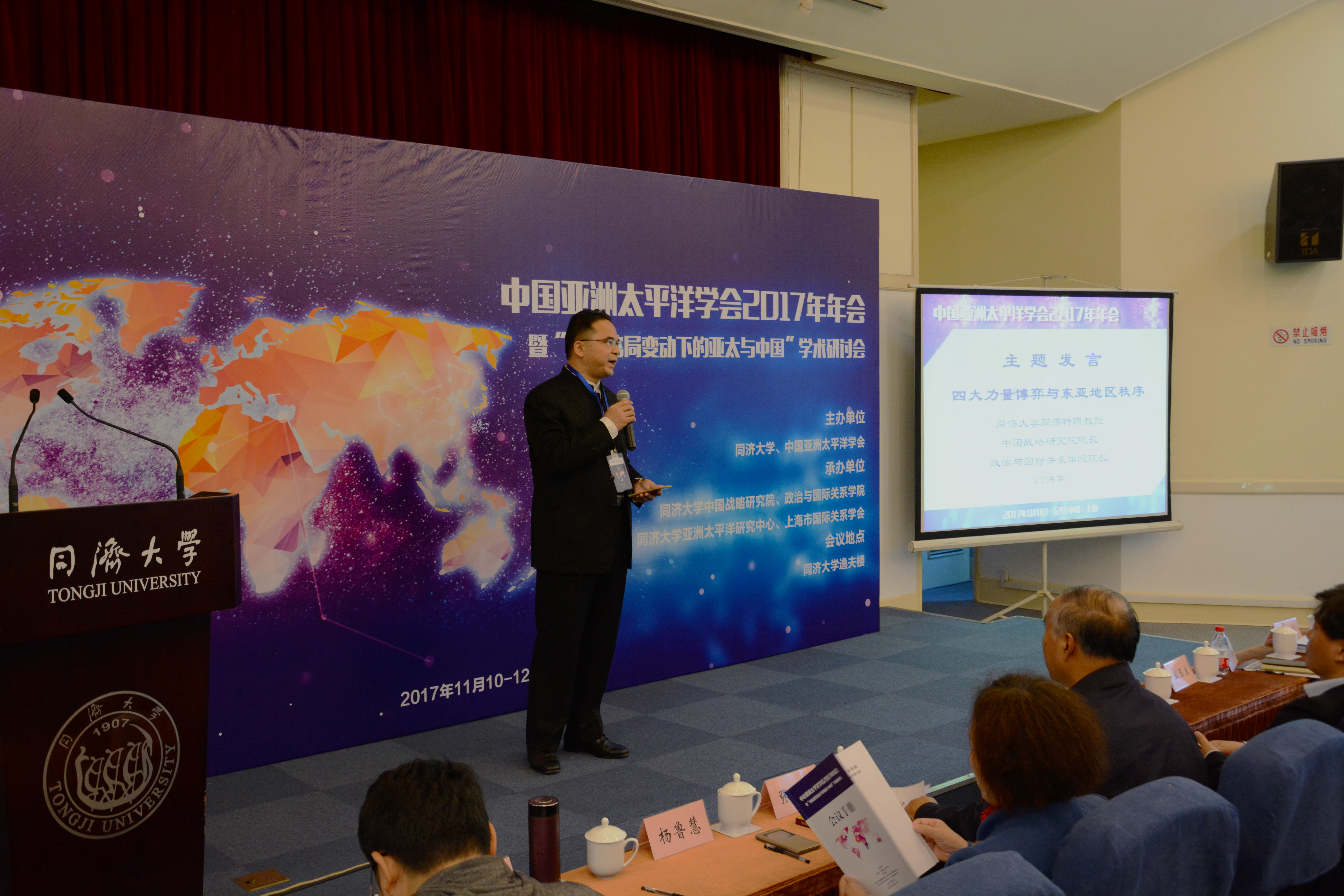
Huang Renwei, former Vice President and a research fellow at SASS, proposed a vision for the future development of the Asian order. Professor Men Honghua, Dean of SPSIR, discussed the major power rivalry involving the United States, China, Japan and ASEAN, and the order in East Asia. Quan Yi, Deputy Head of the Institute of Asia-Pacific Studies at Fujian Academy of Social Sciences, analyzed the necessity of creating a regional comprehensive economic partnership (RCEP) and the response to ensuing challenges. Liu Xiangfeng, a senior fellow at the Institute for International Economic Research (IIER) of NDRC, analyzed the interaction and complementarity between the Belt and Road Initiative and Asia-Pacific regional cooperation, and further explored how to accelerate regional cooperation under the BRI.
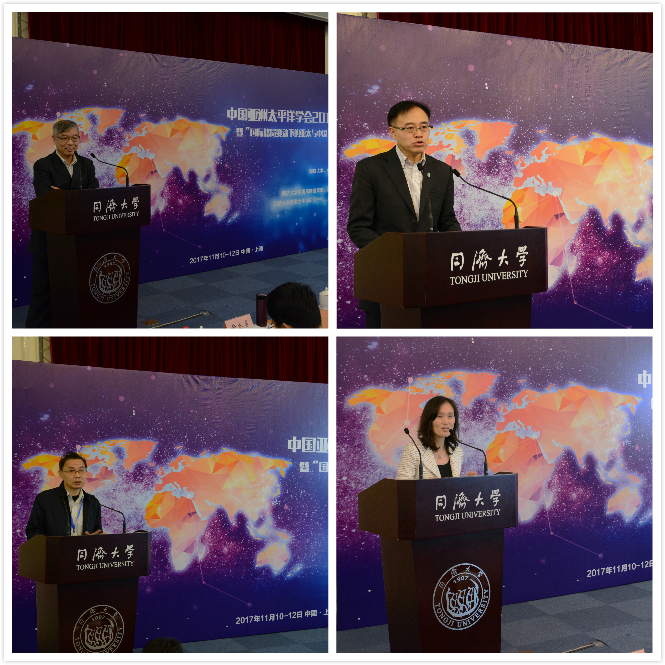
The second session, with CAAPS Vice President Huang Renwei as the moderator, explored the theme of “China and Asia-Pacific under the New Pattern'.
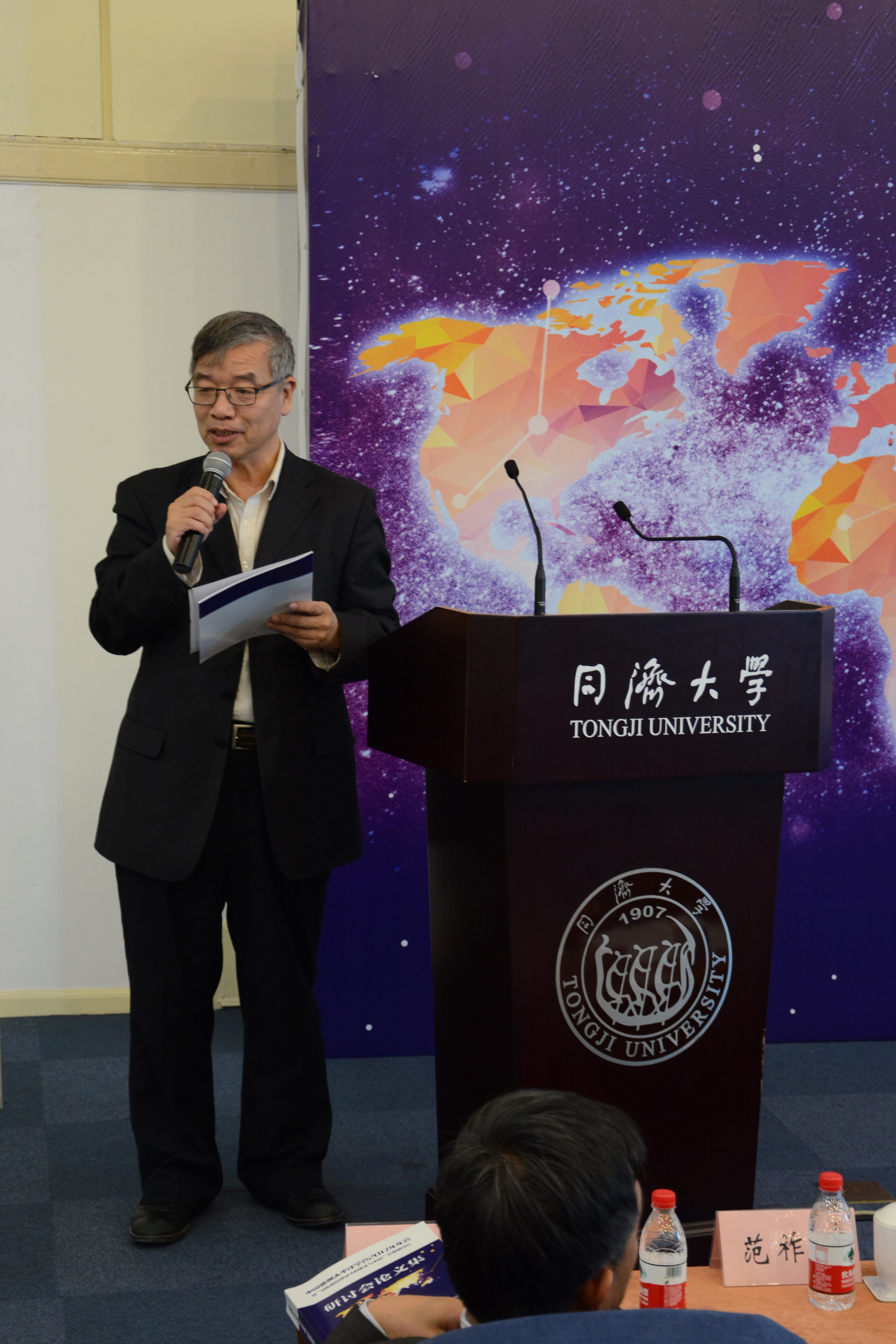
Huang Zhiyong explained the strategic significance of China-Singapore southbound corridor and how to make full use of this corridor to promote the construction of an international shipping hub in the Beibu Gulf. Qiu Huafei, a professor at our school, said that the China experts of the US have kept an eye on China’s neighboring diplomacy for a long time, with a focus on the evolution of China’s neighboring security environment. Wang Jinqiang, an associate professor of International Relations at Shanghai University of International Business and Economics, analyzed China and India’s interest considerations in participating in and promoting regional economic cooperation and their impact on such cooperation. Liu Xuelian, a professor at the School of Public Administration of Jilin University, pointed out that based on the characteristics of East Asia, a new regional order should move from a power order to a governance-based order that is equal, inclusive and cooperative.
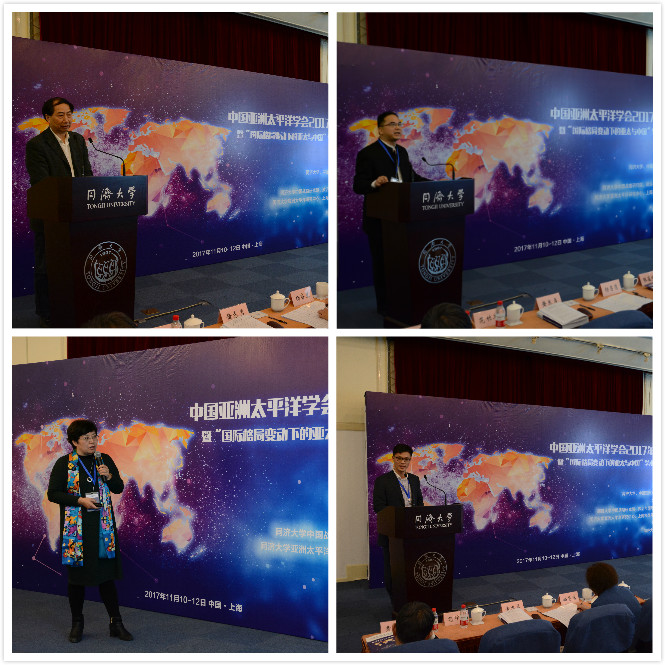
Themed “Competition and Cooperation in the Asia-Pacific Region”, the third session was moderated by Professor Fan Zuojun, Vice President of Guangxi University and Deputy Secretary-General of CAAPS.
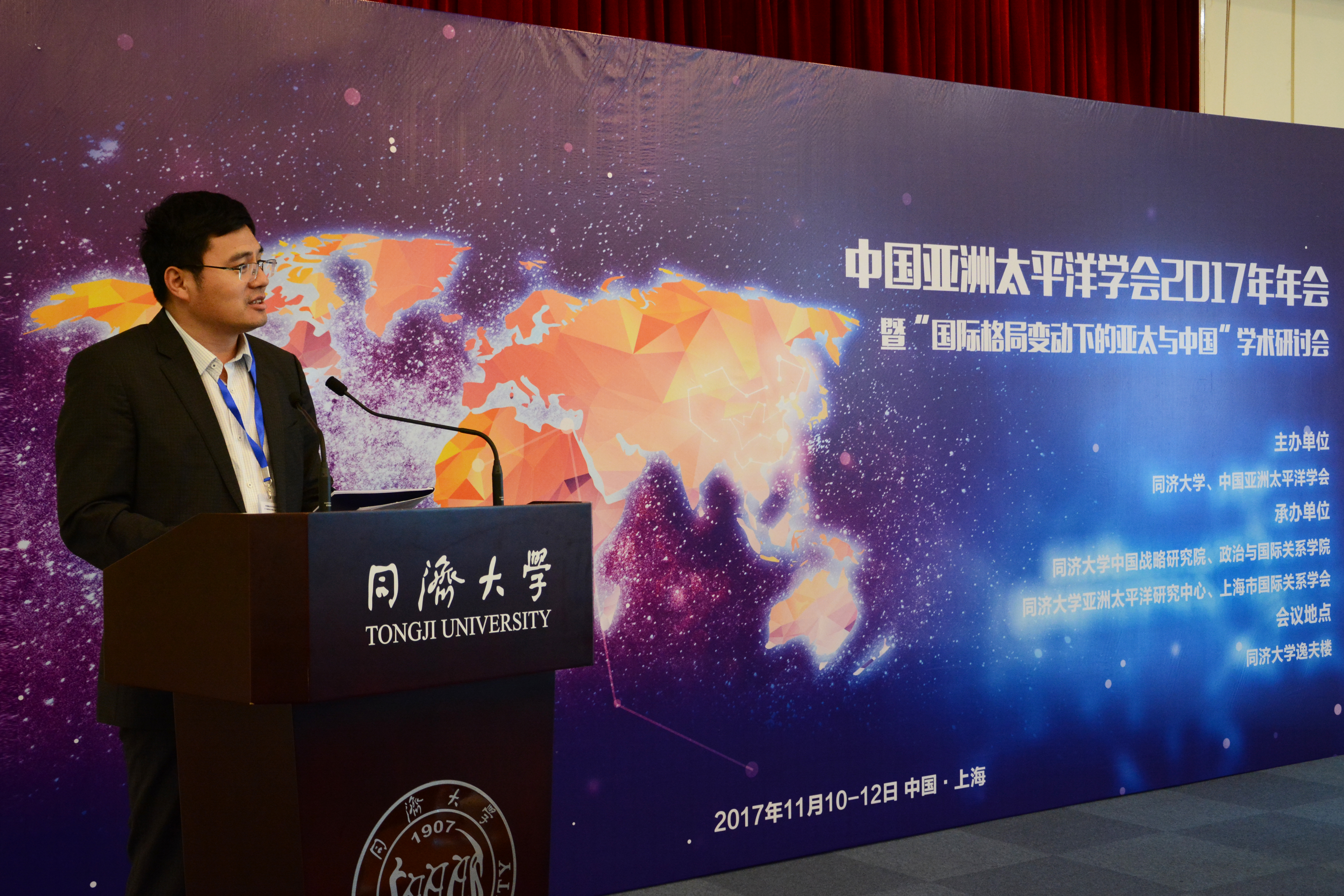
Yu Zhen, a professor at the Economics and Management School of Wuhan University, discussed how the US can get involved in China’s peripheral economic cooperation. Zhou Shixin, an associate researcher at SIIS, analyzed the foreign policies of the Trump administration. Professor Huang Dahui, Deputy Dean of the School of International Studies, Renmin University of China, analyzed the competition and cooperation between China and Japan in terms of the dominance in the Asia-Pacific region. Wang Xiaobo, a professor at the School of Politics and Public Administration of Yanbian University analyzed the pendulum phenomenon and characteristics of the North Korean nuclear issue, and proposed several possible risks and corresponding countermeasures.
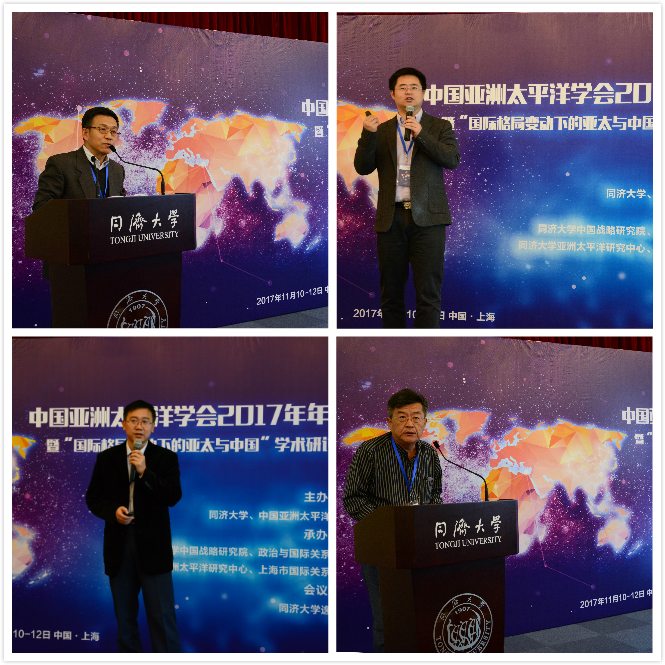
Moderated by Professor Men Honghua, Dean of SPSIR, President of Tongji Institute for China & World Studies, and Deputy Secretary-General of CAAPS, the fourth session discussed the theme of “Strategic Trends of Countries in the Asia-Pacific Region”.

Researcher Li Chenyang, Director of the Social & Humanities Science Research Affairs Office of Yunnan University, analyzed the Rohingya people issue in Myanmar amid political transformation. Professor Xia Liping of our school analyzed how to undermine the US Sea Power Alliance through the establishment of a China-US-Japan cooperative dialogue mechanism. Tian Qingli, a researcher at the Center for Northeast Asian Studies of Tianjin Foreign Studies University, analyzed Japan's strategy transformation after the Cold War and China's response. Dr. Xu Ning, a lecturer at the School of Public Administration of Jilin University, analyzed the behavior anomie under the US Asia-Pacific strategy and the imbalance of strategic orientation.
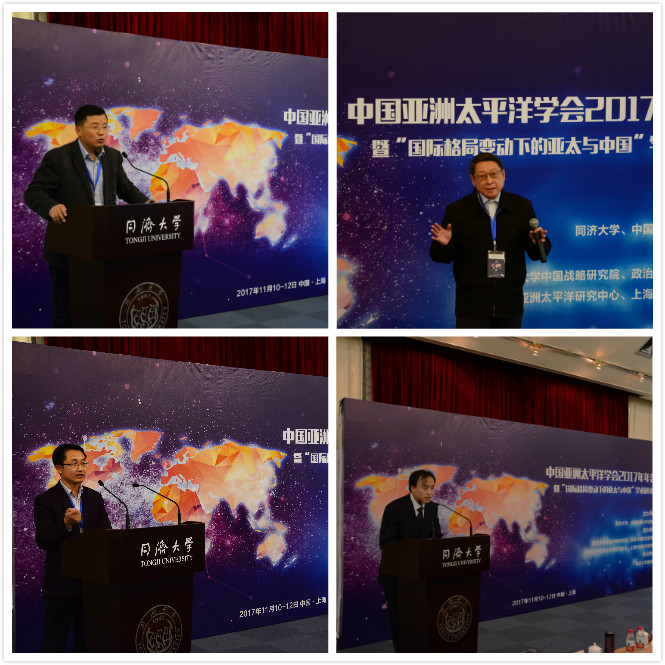
The fifth session themed “Enrichment and Development of China's Asia-Pacific Strategy” was moderated by Yang Luhui, a professor at Shandong University and Vice President of CAAPS.

Professor Wang Cungang, Associate Dean of SPSIR, gave a speech on 'Contemporary China’s International Justice Concept'. Niu Weigan, a professor at the Party School of the Jiangsu Provincial Committee of the Communist Party of China, discussed the issues related to the Belt and Road strategy from the perspective of China’s view on global governance. Zhong Feiteng, a researcher at NIIS CASS, introduced the characteristics of China’s national security strategy. Zhu Jiejin, an associate professor at the School of International Relations & Public Affairs of Fudan University, discussed the role of expertise and competitive cost in promoting the cooperation between China and the World Bank on preparing to build the AIIB.
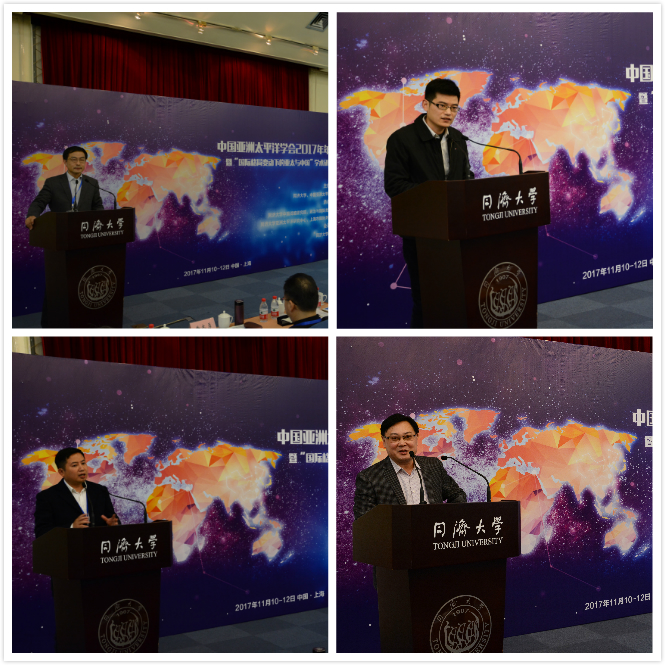
In the next day’s panel discussion, the participants discussed three issues: Asia-Pacific political security, Asia-Pacific economy and trade, and Asia-Pacific regional cooperation. After that, all participants attended the summary meeting, where each panel sent an expert to make a presentation. On behalf of the CAAPS, Secretary-General Wang Yuzhu made a concluding speech and thanked Tongji University for its careful and efficient preparation and organization of this annual conference.
